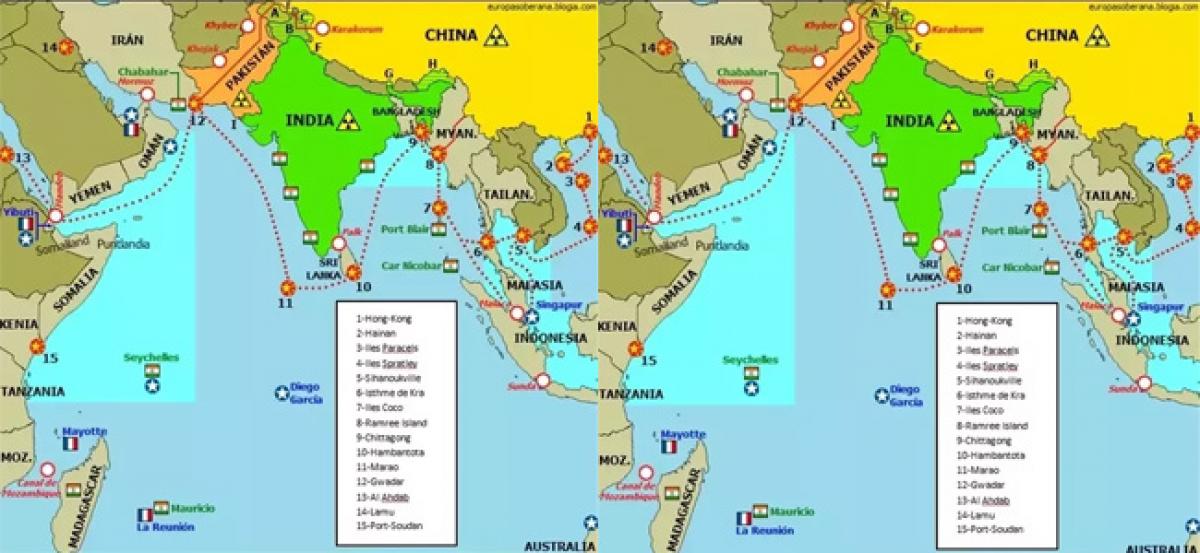Live
- Akansha flaunts seductive look
- Ajith requests fans to drop ‘Kadavuley’ tag, prefers simplicity
- ‘Pushpa 2’ BTS: Rashmika’s transformation as Srivalli
- Sreeleela inaugurates South India Shopping Mall at Ongole
- Nuveksha steals the spotlight
- Rana’s wife Miheeka take social media by storm
- Inter-state burglar arrested
- Traffic diversions for ‘Vision’ meet
- YSRCP stir for MSP today
- Direct flights from Rajahmundry to major cities soon
Just In

Ships carrying Chinese military personnel for Beijing\'s first overseas military base, in Djibouti in the Horn of Africa, have left China to begin setting up the facility as China\'s rapidly modernising military hones its global reach.
Ships carrying Chinese military personnel for Beijing's first overseas military base, in Djibouti in the Horn of Africa, have left China to begin setting up the facility as China's rapidly modernising military hones its global reach. Djibouti's position on the north western edge of the Indian Ocean has fuelled worries in India that it would become another of China's "string of pearls" of military alliances and assets ringing India, including Bangladesh, Myanmar and Sri Lanka.
China began construction of a logistics base in strategically located Djibouti last year that will resupply naval vessels taking part in peacekeeping and humanitarian missions off the coasts of Yemen and Somalia, in particular. This will be China's first overseas naval base, although Beijing officially describes it as a logistics facility.
The String of pearls is a geopolitical theory on potential Chinese intentions in the Indian Ocean region. It refers to the network of Chinese military and commercial facilities and relationships along its sea lines of communication, which extend from the Chinese mainland to Port Sudan. The sea lines run through several major maritime choke points such as the Strait of Mandeb, the Strait of Malacca, the Strait of Hormuz, and the Lombok Strait as well as other strategic maritime centers in Pakistan, Sri Lanka, Bangladesh, the Maldives, and Somalia.
The term as a geopolitical concept was first used in an internal US Department of Defense report, "Energy Futures in Asia." The term has never been used by official Chinese government sources, but it is often used in Indian media. The emergence of the String of Pearls is indicative of China's growing geopolitical influence through concerted efforts to increase access to ports and airfields, expand and modernize military forces, and foster stronger diplomatic relationships with trading partners.
The Chinese government insists that China's burgeoning naval strategy is entirely peaceful in nature and is only for the protection of regional trade interests. An analysis by The Economist also found the Chinese moves to be commercial in nature. Although it has been claimed that China's actions are creating a security dilemma between China and India in the Indian Ocean, that has been questioned by some analysts, who point to China's fundamental strategic vulnerabilities.

© 2024 Hyderabad Media House Limited/The Hans India. All rights reserved. Powered by hocalwire.com







